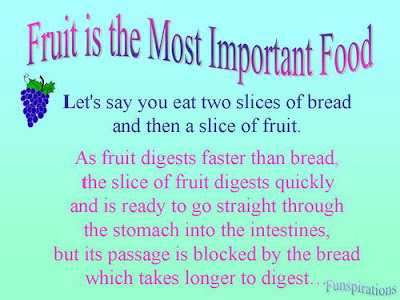
Feeling guilty about bingeing on pasta and chocolates while you were feeling a bit blue? Relax. Savouring your favourite delicacies while you’re on the verge of freaking out can actually help calm the nerves.
Of course, that depends a lot on what kind of food you are biting into. We bring you a list of the foods that should help counteract the ill-effects of stress on your system.
Bananas
Bananas (elaichi and green) are rich in potassium and carbohydrates. Carbs have quite a relaxing effect on the body as they produce the neurotransmitter, serotonin which gives out a sense of calm. Potassium deficiencies are associated with breathlessness, fatigue, insomnia and low-blood sugar which are often triggered by stress. Potassium is also essential for healthy heart muscles.
Expert Speak : To beat stress, consume two bananas a day. For longer lasting effects, try foods that contain complex carbs and are also a lot more palatable such as spaghetti, pasta, macaroni, potatoes, peas, beans, lentils etc.
Finger millet
Raagi as the finger millet is locally known, contains calcium. Research has shown that calcium helps reduce irritability and nervousness to some extent. It has also been found to be particularly effective in alleviating symptoms associated with PMS (pre-menstrual stress).
Expert Speak : Consume two tablespoons daily in your chappatis, by simply mixing it with wheat flour.
Apples
This fruit contains phosphorous and iron and helps reduce oxidative stress. This, in turn, helps cell-regeneration which is known to be adversely affected in times of stress. As the skin is possibly the first to show signs of stress, apples can help counter that by helping build healthy skin and hair tissues.
Expert Speak : Try consuming one apple a day. Choose whole apples over fruit juice as the fibre is lost in juices. However, apples must not be consumed on an empty stomach as this may trigger indigestion.
Amla
It is by far the most widely used herb in Ayurveda and it offers many benefits, one of which is its ability to fight the ill-effects of stress. Amla comes loaded with vitamin C which keeps the walls of the capillaries flexible. One of the first signs of stress is the constriction of blood vessels and capillaries right through the body and vitamin C can help counter this.
Expert Speak : Have two amlas a day. Also, amla does not lose its properties when dried and, therefore, you can enjoy the same benefits from dried amla when the fruit is not in season. Yet another food loaded with vitamin C is guava.
Oats
Oats are an excellent source of soluble fibre which has been associated with reduced cholesterol level and reduced risk of heart disease. Oats are also loaded with phytochemicals which in turn help regulate the digestive system and blood sugar levels, which are adversely affected by stress.
Expert Speak : Consume three tablespoons of oats a day. Oats or oat-bran may be added to cereals, yoghurt, salads etc. Oatmeal can also be part of your breakfast routine. Or you could also try using whole oat flour instead of white flour in baking.
Chamomile
Back in 1800s, it is believed, chamomile was used to calm hysteria. Today, it is used to relieve anxiety. Research has shown that it also has some anti-spasmodic properties and can help relieve cramps and several digestive problems associated with nervous disorders.
Expert Speak : Whenever under pressure, sip on chamomile tea.










































